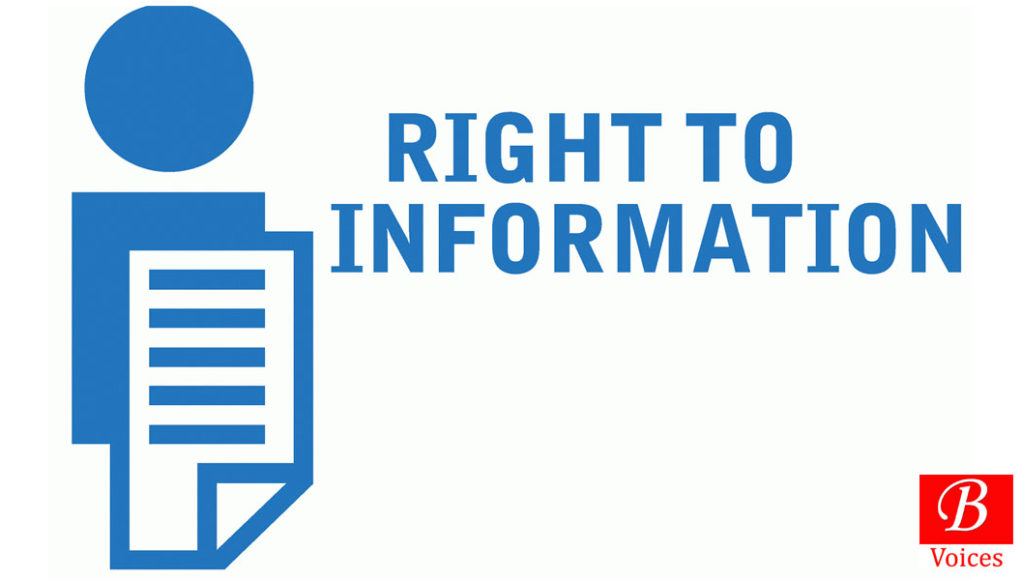 Saddam Shah
Saddam Shah
Transparency and accountability are the two sides of one coin; more transparency and accountability; less corruption and more competency, and less transparency and accountability; more corruption and less competency.
There can be no any effective tool than law, which can limit absolute authority of the government by themselves, in favor of public interest, and fortunately, this is the Rousseau’s ‘General will’ of the people of any country.
A vague is the call of citizens, to request the government and officials to be honest, nor the conscience of man has ever restricted him from the evil deeds, particularly the authoritarian chaps, rather it is only the fear of external punishment by the law of state, which reduces the odd nature of white collar man more than anything else can.
Read also: Balochistan Government Pledges to Table RTI Bill in Assembly in 2 Months
It is a dominating perennial practice of complaining in developing societies, rather defending with influential tools; the efficient alternative that has inclination towards the solution of problem, and not such complaints, which are not useful, and also obsolete.
Citizens have rights too; in return of their duties, they perform
Revenue, collected from the taxes, citizens have paid, is the collective treasure of public, and they must know where their money is spent? And, is the government using their money for public interest or for themselves?
It is not only about money, rather every citizen may ask its government, both permanent and temporary, what its activities are? Are those activities fulfilling the public needs and demands? Do they perform their job, for which they have been opted or elected, and of which they are paid?
It is good to criticize the government of its bad policies, but it is the best to persist asking it of its duties; and that is what we call a welfare state of the modern time, or at least towards being welfare
The previous case of Balochistan Finance Secretory, Mushtaq Raisani was in actual not a new case, but fortunately an exposed one. He was set free after a plea request to submit 2.25 million in Rupees.
Every citizen in Balochistan knows that government can do, what can’t be done. The officials of provincial government are well aware of their dark activities under the brown carpet, and same has been of the central, but thanks to the institutionalization by the central government that has brought the federal departments on their actual track to much extent, but unfortunately and incompetently, the province with smallest population but with largest territory is lagging behind regarding such a significant duty of any government.
Balochistan legislative assembly passed ‘Freedom of Information Act 2005’ that inserted the country in list; of those states that have fundamental ‘Right to Information law’, and have implemented it in their countries.
Sweden is the pioneer state to implement ‘Right of Information’ law, but oxymoronically, yet on forty-fifth in 113 countries, according to Global Right to Information Rating. Hence, it is evident from the fact that merely implementing a law is not a whole job, rather making sure that it will bear effective and positive consequences, and to have watchdog on it, is more than essential for administrating things.
Eighteenth amendment in the constitution on April 8, 2010 bestowed the citizens with Article 19-A, in the very first chapter of fundamental rights, that asserts, “Every citizen shall have the right to have access to information in all matters of public importance subject to regulation and reasonable restrictions imposed by law”.
The KPK and Punjab provincial governments separately passed ‘Right to Information Act 2013’; both are clear and effective and but incompetently Balochistan lags behind again, as even Sindh Assembly has also unanimously passed ‘Right to Information Act 2017’ in last week.
For the well-being of citizens of Balochistan, there is a dire need to have accountability of the institutions under the provincial government, so that, the wealth of Balochistan is used for its development, and the concerns always raised by the central government regarding the incapability of the provincial government could be technically overcome.
For citizens, loyalty to the state is only possible, if its institutions are really working for their welfare, or in other terms, guaranteeing them to facilitate and ensure their general good
So, whole mean of this piece is ‘to empower the citizens; to constitutionally pressurize the state’s institutions, particularly the provincial ones; to raise their collective voice against the unjust of corruption and their concerns over the lack of competitiveness of provincial departments, and that is how the people control their state machinery through legitimate means.
Merely passing numerous acts in the constitution is not sufficient to minimize issues, rather making the people aware, to utilize such beneficial acts; through civil society organization, and also to regulate such acts; by having an independent authority, that would ensure the efficiency of such act, and measure its outcomes.
In this way only citizens of Balochistan can enhance the efficiency of its government, and making it more accountable, both for the money; Where spent? How much? and Why? and also to ensure themselves, whether the government is on people’s track or they have chosen of their own?
Writer is a Student of Defence and Strategic Studies at Quaid-i-Azam University, Islamabad.
Disclaimer: Views expressed in this article are those of the author and Balochistan Voices not necessarily agrees with them.
Share your comments!








